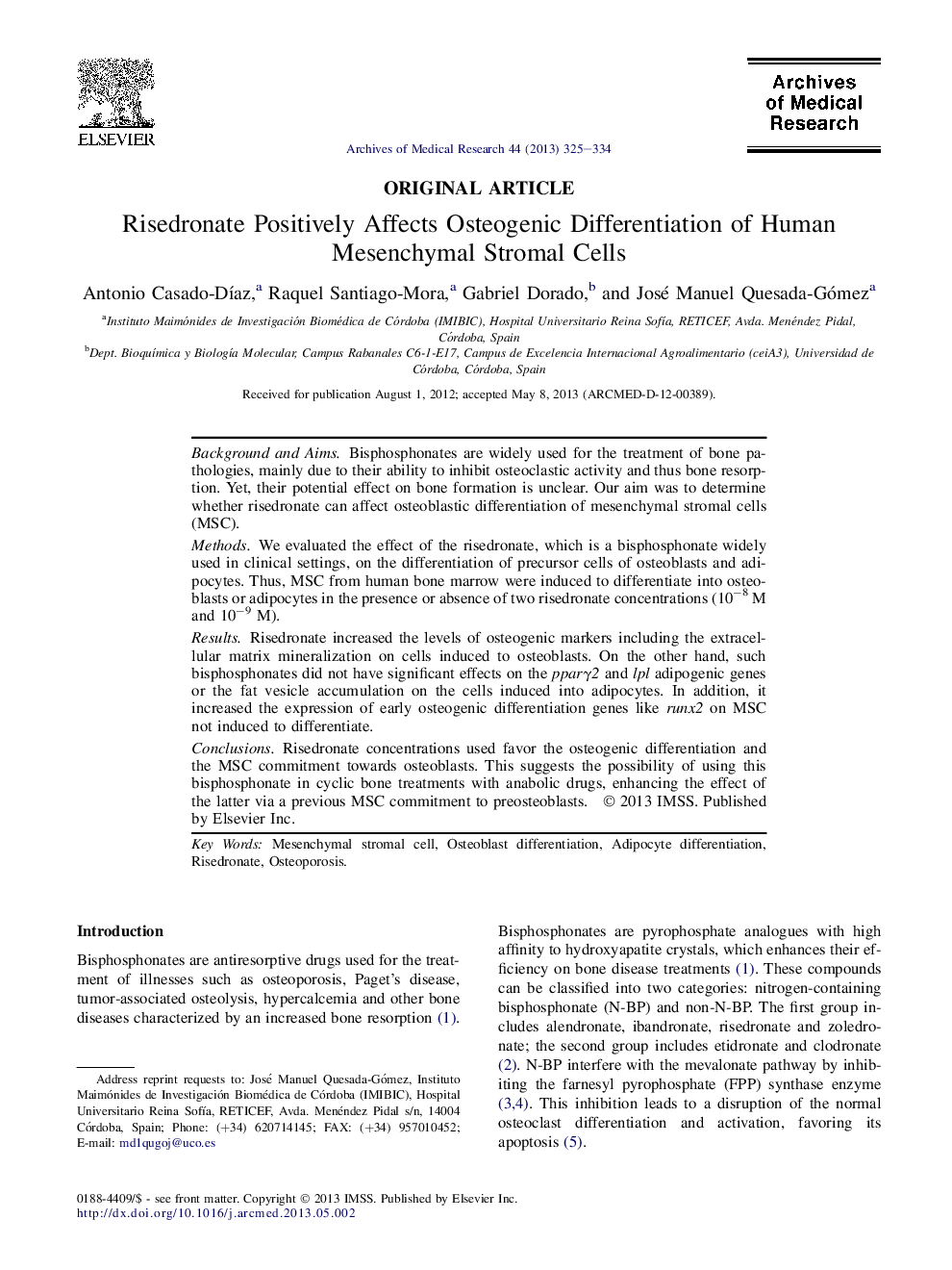| Article ID | Journal | Published Year | Pages | File Type |
|---|---|---|---|---|
| 3446551 | Archives of Medical Research | 2013 | 10 Pages |
Background and AimsBisphosphonates are widely used for the treatment of bone pathologies, mainly due to their ability to inhibit osteoclastic activity and thus bone resorption. Yet, their potential effect on bone formation is unclear. Our aim was to determine whether risedronate can affect osteoblastic differentiation of mesenchymal stromal cells (MSC).MethodsWe evaluated the effect of the risedronate, which is a bisphosphonate widely used in clinical settings, on the differentiation of precursor cells of osteoblasts and adipocytes. Thus, MSC from human bone marrow were induced to differentiate into osteoblasts or adipocytes in the presence or absence of two risedronate concentrations (10−8 M and 10−9 M).ResultsRisedronate increased the levels of osteogenic markers including the extracellular matrix mineralization on cells induced to osteoblasts. On the other hand, such bisphosphonates did not have significant effects on the pparγ2 and lpl adipogenic genes or the fat vesicle accumulation on the cells induced into adipocytes. In addition, it increased the expression of early osteogenic differentiation genes like runx2 on MSC not induced to differentiate.ConclusionsRisedronate concentrations used favor the osteogenic differentiation and the MSC commitment towards osteoblasts. This suggests the possibility of using this bisphosphonate in cyclic bone treatments with anabolic drugs, enhancing the effect of the latter via a previous MSC commitment to preosteoblasts.
